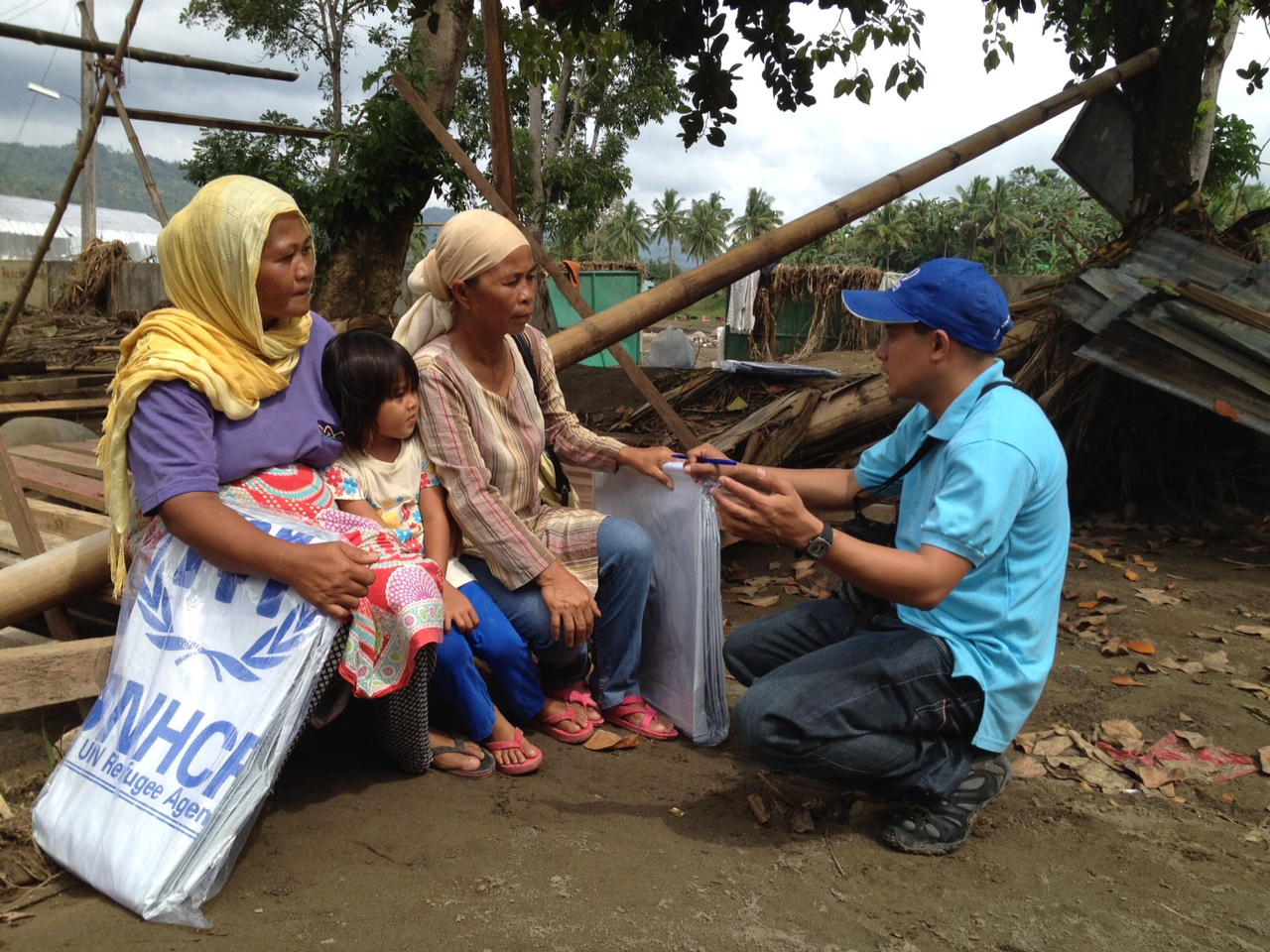UNHCR providing emergency aid for desperate Congolese refugees
UNHCR providing emergency aid for desperate Congolese refugees

NKONDO, Uganda , Jan. 19 (UNHCR) - Trapped between fighting on one side and an uneasy exile on the other, thousands of Congolese refugees have spent the past 10 days crossing back and forth between eastern Democratic Republic of the Congo (DRC) and Uganda, fleeing two seemingly unrelated conflicts.
In recent days, 7,000 people have crossed back into DRC from their refuge in Uganda. They were part of a group of 10,100 people who arrived last week in Ishasha in Kanungo District near Lake Edward. They told UNHCR they fled the north-Kivu region of DRC because of renewed fighting between the Mai Mai and another rebel group.
However, in the confusion in the area, the UN refugee agency has received reports that fighting is continuing and that more refugees are on their way to Uganda.
The Kivu refugees were the second group of Congolese to arrive in western Uganda in the last 10 days. Earlier, some 5,000 to 7,000 people fled by boat across Lake Albert, arriving in the Nkondo, some 285 kilometres west of Kampala in Hoima district. They said they left their homes in Ituri district because of fighting between Hema and Lendu tribes in their region.
At the end of last week, there were about 20,000 new refugees in western Uganda.
The 3,000 people who remain in Ishasha are in need of are in urgent need of assistance, including food but food, water and sanitation.
"Our main concern there is for the security of the refugees,'" UNHCR's spokesman Ron Redmond told journalists in Geneva on Thursday. "Ishasha is only three kilometres away from the border along an unmanned border post. We have requested that the Uganda authorities set up police and army posts near the site to protect the refugees'"
District authorities have also exhausted their supplies of food for the refugees. UNHCR's sister UN agency, the World Food Programme (WFP) has said it will provide food to refugees who move to Kyaka II, an established refugee settlement further inland. UNHCR is requesting that food be distributed to all the refugees at Ishasha.
A UNHCR team met Tuesday with the local authorities to set up a plan of action for the refugees at Ishasha. Another team is travelling from Kyaka II, a permanent settlement for Congolese refugees, to Ishasha to check the states of the road and prepare the logistics of transferring the refugees away from the border to the settlement.
Kyaka II, already home to 8,000 Congolese refugees, is now ready to receive another 10,000 people if needed. A group of 471 refugees at Ishasha registered Tuesday to move to Kyaka II.
UNHCR began moving refugees to Kyaka II from the other arrival site, at Nkondo on the shores of Lake Albert at the weekend. On Saturday, 156 people moved to the settlement, a further 171 travelled to Kyaka II on Tuesday. However, many of the newcomers do not want to go to the settlement.
"The majority of them are women and children," Redmond said, "who are reluctant to leave the border area until their husbands and fathers arrive. This is a source of concern to us, since there are serious health risks for the refugees in staying where they are."
Many of the refugees at Nkondo arrived in poor health, and will likely become worse because there are not sanitation facilities, and they are drinking water from the lake,
The refugees are also at the bottom of a sharp escarpment accessible only by small pick-up trucks down a very precarious road, which makes it impossible for UNHCR to provide more than basic assistance to this group - water, basic food rations and medical screening.
WFP has helped out by distributing high-protein biscuits to the refugees, but water remains a particular problem, as there is not even enough for the usual local population.
A few kilometres away, UNHCR has set up a transit centre in a primary school in the town of Hoima. Some 2,000 refugees have made their own way to Hoima, where water and shelter are available at the transit centre. UNICEF has provided 30 portable latrines, while a national NGO is helping to identify unaccompanied children and finding temporary foster families for them.







